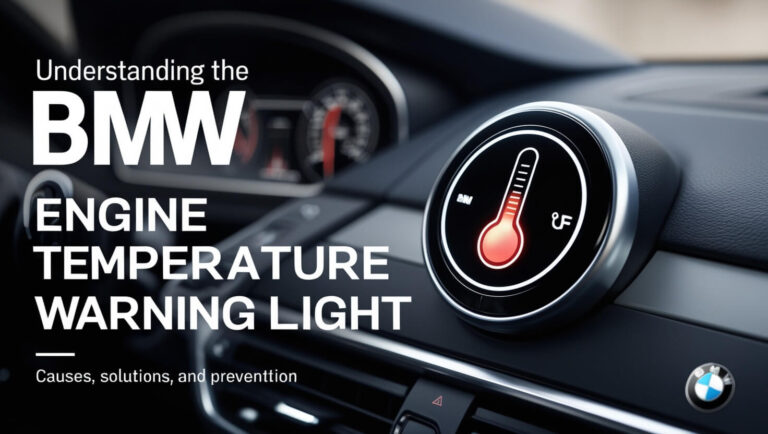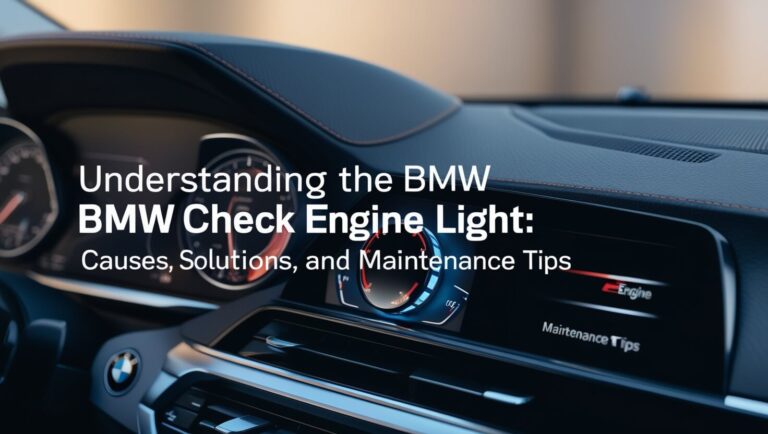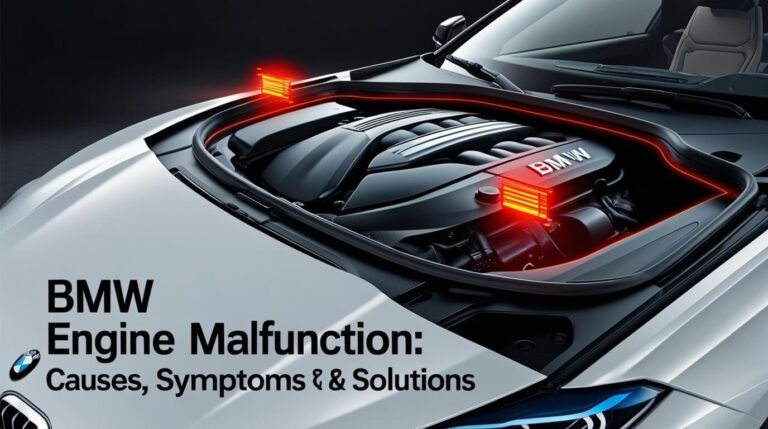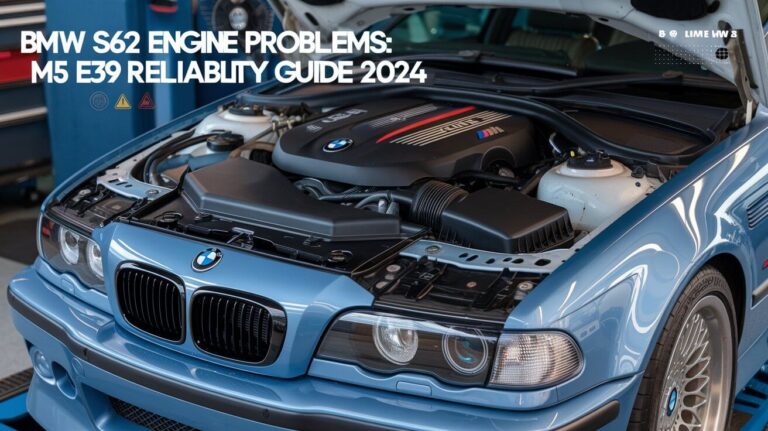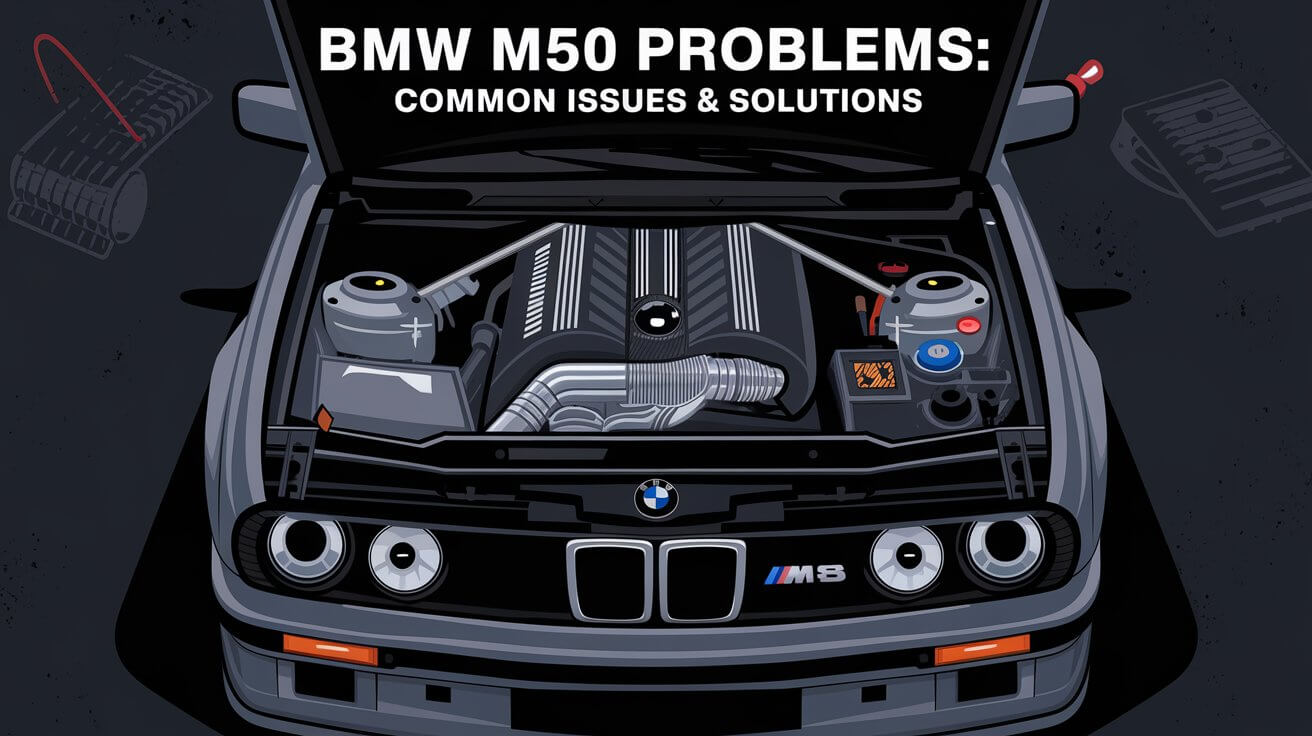
BMW’s M50 engine packs a punch, but it’s not without its headaches. From cooling system breakdowns to pesky oil leaks, M50 owners face their share of hurdles. We’ll tackle these common problems head-on and arm you with practical fixes to keep your engine purring. Whether you’re a seasoned gearhead or a curious newbie, this guide has your back. Let’s roll up our sleeves and get your M50 back in fighting shape.
BMW M50 Engine
BMW’s M50 engine made its debut in 1990, powering the E34 520i and 525i models. This inline-six powerplant quickly gained a reputation for its smooth operation and impressive performance.
Brief History and Specifications
The M50 replaced the older M20 engine, bringing several improvements:
- Double overhead camshafts (DOHC)
- Four valves per cylinder
- Coil-on-plug ignition system
- Lighter plastic intake manifold
In 1992, BMW introduced the M50TU (Technical Update) version, which added single VANOS (Variable Valve Timing) to the mix.
Models Featuring the M50 Engine
Several BMW models sported the M50 engine:
- E34 520i and 525i (1990-1996)
- E36 320i and 325i (1991-1995)
These engines came in 2.0L and 2.5L variants, with the larger displacement versions offering more power and torque.
Top BMW M50 Engine Problems
While the M50 is generally reliable, it’s not without its issues. Let’s explore the most common problems owners face.
Cooling System Failures
The cooling system is often the Achilles’ heel of the M50 engine. Components like radiators, thermostats, and hoses tend to wear out over time.
Water Pump Issues
Water pumps, particularly those with plastic impellers, are prone to failure in M50 engines.
Oil Leaks from Valve Cover and Gasket
As these engines age, oil leaks from the valve cover and gasket become more common.
Ignition System Troubles
Coil packs and spark plugs can wear out, leading to misfires and poor performance.
Idle Control Valve Malfunctions
A faulty idle control valve can cause rough idling and stalling.
Cooling System Breakdowns in Detail
The cooling system is crucial for maintaining optimal engine temperature. When it fails, serious damage can occur.
Radiator and Thermostat Failures
Radiators can develop leaks, while thermostats may stick open or closed. Signs of trouble include:
- Engine overheating
- Coolant leaks
- Inconsistent temperature readings
Regular inspections can catch these issues early. Replace worn components promptly to avoid more severe problems.
Expansion Tank Cracks
The plastic expansion tank can crack under pressure and heat. Look for:
- Visible cracks or damage
- Low coolant levels
- Coolant puddles under the car
Consider upgrading to an aluminum expansion tank for better durability.
Coolant Leaks and Their Consequences
Coolant leaks can lead to:
- Engine overheating
- Warped cylinder heads
- Blown head gaskets
Always address coolant leaks immediately to prevent costly engine damage.
Water Pump Woes: A Closer Look
The water pump is vital for circulating coolant throughout the engine.
Plastic Impeller Weaknesses
Early M50 water pumps used plastic impellers, which can break or erode over time. This reduces cooling efficiency and may cause overheating.
Symptoms of a Failing Water Pump
Watch for these signs:
- Engine overheating
- Coolant leaks near the front of the engine
- Whining noises from the engine bay
Preventive Measures and Upgrades
To avoid water pump failures:
- Replace the pump every 60,000-80,000 miles
- Upgrade to a metal impeller pump for better longevity
- Use high-quality coolant and change it regularly
Tackling Oil Leaks
Oil leaks are common in aging M50 engines, but they’re often manageable with proper maintenance.
Valve Cover Gasket Replacement
The valve cover gasket can harden and crack over time, leading to oil leaks. Replacing it is a relatively simple job:
- Remove the valve cover
- Clean the mating surfaces
- Install the new gasket
- Reinstall the valve cover, taking care not to overtighten bolts
Identifying Oil Leak Sources
Oil leaks can come from various sources:
- Valve cover gasket
- Oil filter housing gasket
- Oil pan gasket
- Front and rear main seals
Pinpointing the source is crucial for effective repairs.
DIY vs Professional Repair
While some oil leaks are easy to fix at home, others may require professional help. Consider your skill level and the complexity of the repair before deciding to DIY.
Ignition System Troubles
A well-functioning ignition system is crucial for smooth engine operation.
Coil Pack and Spark Plug Issues
M50 engines use individual coil packs for each cylinder. These can fail over time, causing:
- Misfires
- Rough idle
- Poor acceleration
Spark plugs also wear out and need regular replacement.
Symptoms of Failing Ignition Components
Look out for:
- Check engine light
- Rough running or misfires
- Decreased fuel economy
- Difficulty starting the engine
Maintenance and Replacement Tips
To keep your ignition system in top shape:
- Replace spark plugs every 30,000-50,000 miles
- Inspect coil packs regularly for cracks or damage
- Use high-quality replacement parts
Idle Control Valve Problems
The idle control valve regulates airflow at idle, keeping the engine running smoothly.
Symptoms of a Faulty ICV
A problematic idle control valve can cause:
- Rough or unstable idle
- Stalling at stops
- Fluctuating RPMs
Cleaning vs Replacing the ICV
Often, cleaning the ICV can restore proper function:
- Remove the valve
- Clean with carburetor cleaner
- Reinstall and test
If cleaning doesn’t help, replacement may be necessary.
Impact on Engine Performance
A faulty ICV can lead to:
- Poor fuel economy
- Difficulty starting the engine
- Increased emissions
Addressing ICV issues promptly can prevent these problems.
Other Less Common M50 Engine Issues
While less frequent, these problems can still affect M50 engines.
VANOS System Concerns (for TU models)
The VANOS system can develop issues over time:
- Oil leaks from VANOS seals
- Rattling noises
- Loss of low-end torque
Regular oil changes with the correct oil weight can help prevent VANOS problems.
Fuel System Problems
Fuel system issues may include:
- Clogged fuel injectors
- Failing fuel pump
- Leaky fuel lines
Regular fuel system maintenance can prevent many of these problems.
Sensor Malfunctions
Various sensors can fail, affecting engine performance:
- Mass airflow sensor
- Oxygen sensor
- Coolant temperature sensor
When these sensors malfunction, you may see a check engine light and experience poor performance.
Maintaining Your BMW M50 Engine
Proper maintenance is key to avoiding many common M50 problems.
Regular Maintenance Schedule
Follow this basic schedule:
- Oil changes: Every 5,000-7,500 miles
- Coolant flush: Every 30,000 miles
- Spark plug replacement: Every 30,000-50,000 miles
- Timing belt replacement: Every 60,000-90,000 miles
Importance of Quality Parts
Using high-quality parts can extend the life of your M50 engine. OEM or reputable aftermarket parts are usually the best choice.
Tips for Prolonging Engine Life
To keep your M50 running strong:
- Use the recommended grade of oil
- Address problems promptly
- Keep the engine clean
- Avoid prolonged idling
- Allow the engine to warm up before hard driving
bottom line
Despite its problems, the BMW M50 engine is generally reliable when properly maintained. Many of its issues are predictable and preventable with regular care. By staying on top of maintenance and addressing problems early, you can enjoy the smooth power and performance of the M50 for many miles to come.
Remember, every engine has its quirks, and the M50 is no exception. But with knowledge and proper care, you can minimize problems and maximize enjoyment of your BMW powered by this classic engine.

